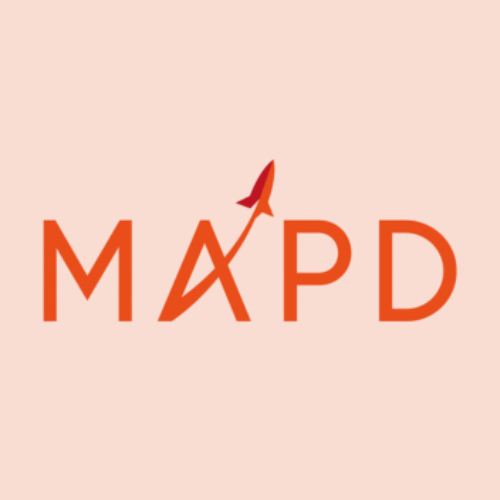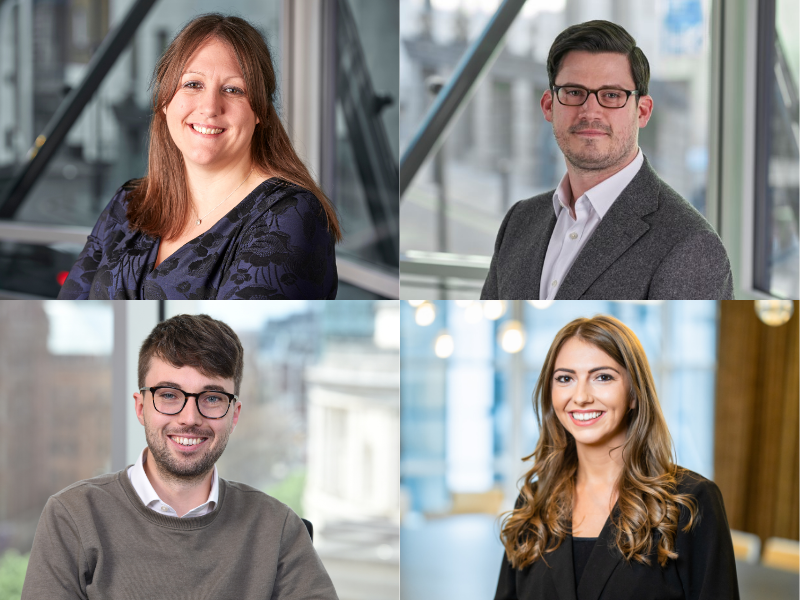
Insights from MAPD Group: AI and innovation in customer experience
We spoke to Joanna Kingston-Davies and Paul Madden from MAPD Group about their innovative AI model and Knowledge Transfer Partnership, looking at how AI, data science and behavioural psychology profiling can improve client experience. They share their insights on how to drive innovation and the importance of differentiating yourself in the current legal tech market.
Can you start by introducing yourself and telling us a bit about your roles at the MAPD Group?
Joanna: We set up the MAPD Group in 2020. MAPD stands for ‘Making A Positive Difference’; our approach to market perspective is that law is a people business, and our people and client experiences drive everything we do at MAPD. Our first acquisition was Jackson Lees Group – at that point we were at 12 mil turnover. Now, having acquired six businesses across ten brands with fifteen offices across England and Wales, we’re at 40 mil turnover. As co-founder of MAPD, I’m always looking outwards for where we’re going, helping to lead and manage the business.
Paul: I’m Chief Marketing and Client Experience Officer. A core part of my role is making sure people can build their businesses sustainably and grow. I also look after innovation and digital marketing. That’s always been my background – client services and how to help and support people.

Photo: Joanna Kingston-Davies
“Often law is a vulnerable or occasional purchase; people don’t necessarily want a lawyer.
Very often, they’re in a place of stress or vulnerability – bereavement, moving house, divorce. It’s no different in the business world.”
Could you give us an overview of the project, and what led your team to focus on this particular application of AI?
Joanna: Five years ago, Brian (Cullen, MAPD Group Co-Founder) and I were looking at the legal services market and how MAPD approaches people. Internally, we use a commercialised personality profiling tool called ‘colourful insights’ to build better teams. The premise of this model is that everyone is a mix of all four colour energies within a colour wheel. Everyone has preferences, but the more you understand about yourself and each other, the more rich, inclusive and creative your teams can be.
We started to look at how we might apply that to our clients. The legal industry, particularly from a tech perspective, has been built by lawyers, for lawyers. Practice management systems are based on legal milestones that don’t necessarily speak to the consumer. Often law is a vulnerable or occasional purchase; people don’t necessarily want a lawyer. Very often, they’re in a place of stress or vulnerability – bereavement, moving house, divorce. It’s no different in the business world. Someone might be going through a difficult litigation or stressful transaction. We wanted to see how the personality preferences we use to facilitate a deeper understanding within our own teams could be applied to our clients and help them in these situations.
We talked to universities about how we could evolve this thinking. The University of Manchester was exceptional and understood how unique our needs were. We applied for a Knowledge Transfer Partnership (KTP) to share our practical, real life experience with the rigor and theory of the university’s academics.
At this time, we had an instinct that process efficiency would be improved by AI. Whilst we didn’t have the resources to invest huge amounts in research and development functions, larger tech organisations were driving that change. As a SME, our priority was to do something more disruptive, different and focused on MAPD’s purpose of making a positive difference.
Paul: Our KTP is different because there’s not just one discipline within the university involved. One part is focused on behavioural psychology, which is helping us understand how people and clients feel, and how we can best use tech to support them. The other is focused on AI and data science. These two sides come together and feed into the client experience and communication that we are looking at. We talked to lawyers and our clients worldwide to draw out important insights and data that influenced the project. Great communication is hard work. In the service industry, it’s something we put a lot of energy into. AI is already being used in our sector for process driving, so we felt it was right to use it to improve client experience.
How does this model work in practice?
Paul: All of this research helped us understand how people think and work, so that we could tailor communication to their different needs. It also helped us to develop our model, which is a version of sentiment analysis. The sentiment analysis you see in the market at the moment is a very high level of positive vs. negative. Our algorithm allows us to go much deeper to get a clearer understanding of how our clients are feeling. We’re able to use this to look at the communications our clients are receiving and their emotional reactions to garner feedback that we share with our lawyers and across our business.
We’ve also created an emotional regulation framework to help us understand how we can communicate most effectively to support our clients in the best way. This framework has been digitalised into a trained, fine-tuned large language model to help you coach and support in drafting the best communications for the client’s personalised needs. All this knowledge means our lawyers can respond in the most effective way possible to our clients.
Were there any unexpected challenges during development?
Paul: One of the challenges for any legal firm of our size is keeping data organised in a coherent, structured, secure and accessible manner. We had to do a bit of work to make sure our data was in a good place so that it could be used properly. This slowed us down in the early stages, but once we had it in order it was our most powerful tool.

Photo: Paul Madden
“Great communication is hard work. It’s something we put a lot of energy into.
AI is already being used in our sector for process driving, so we felt it was right to use it to improve client experience.”
Another challenge is integrating AI into our people’s workflows. I think we’re already seeing this across the sector with the widespread adoption of AI – the need to ensure we get the full benefits from the technology we use. We provide a lot of support and training around our model and the tech behind it. We have also employed a behavioural psychologist to help us understand how people adapt and change, so that we can continue to support our people as best as possible.
Joanna: I think demystifying AI and getting people comfortable and engaging with the tech is as important as any launch date, and that side can be underestimated. I think there’s an innate fear with lawyers that they will be replaced by AI. We strongly believe that AI is a tool to be used effectively – to automate certain parts of work or do them in a slightly different way – rather than undermining the massive value that lawyers have.

What kind of feedback have you received from users so far?
Joanna: Innovate UK awarded us ‘Outstanding’ on all criteria across the KTP, which is the best feedback on how the research project itself was run and concluded.
Paul: It confirms that we’re heading in the right direction. In terms of client data, it’s too early for it to be statistically robust. But we’ve heard from our lawyers who have been going through the training on how to use the model. They’ve given feedback and answered surveys to let us know that it’s adding value to their role. That’s really positive.
Anecdotally, we’ve seen a lot less issues around communication. We’re picking it up quicker and faster, and managing them in a better way. That’s early evidence of impact, too.
What excites you about this project, and in what ways do you think this model could evolve?
Paul: The relationship we have with The University of Manchester and the access to shared research funding is incredibly valuable. This project has prepared us for AI and impacted how we think about tech and its role in the legal sector. I don’t think that would have happened otherwise, and it’s prepared us for the future. We have plans to continue working with the university going forward – this project is part of an evolving journey for us. There’s so much more to do in the client experience space. Not a lot of other suppliers are doing that yet, so it’s given us an early advantage.
Joanna: To access research funding, you have to be able to tangibly prove the uniqueness of a project. I think that’s what’s really important about our project – the innovation element. I think it’s really important that people come up with their own ideas that sit alongside their own strategy, their own business purpose. That’s what’s been crucial to us is always focusing on how we make a positive difference to our clients, to our internal teams and to our lawyers.
I think there’s a lot of panic at the moment in the sector about the impact of AI. I think if you focus on what’s unique to your business, and what you can look to develop that will help you achieve that, will help you find your key differentiator.
Paul: We’re just at the start of change for this sector. Assistive technology is going to help us in ways that we’re only just starting to understand. It’ll allow us to direct our most precious resource – our people – to focus their energy into more effective activities that will be better for everyone involved. But this is only the beginning. One of the challenges in the market is everyone scrabbling to make sure they’ve got something to offer. Therefore there’s a few AI tools out there that aren’t quite ready. I think in the next year we’ll see that settle down and products that you can trust will emerge. I think that’s really exciting.
Joanna Kingston-Davies will be speaking at Legal Geek Growth on 5 June in London. Learn more about the event and secure your spot at the UK’s largest gathering of boutique, regional, and independent law firms this summer.


